

Prior Episodes | 7972 (5 BBY) | Next Episodes
Continuity & Analysis
Andor - Announcement (2022) [S1E7]
The repercussions of the Aldhani heist reach all the way to Coruscant,
while Cassian returns home.
Andor - Narkina 5 (2022) [S1E8]
The Empire catches up to Cassian, but are as yet unaware of his identity and past.
Andor - Nobody's Listening! (2022) [S1E9]
Under intense scrutiny while imprisoned, Cassian makes allies to plan an impossible escape.
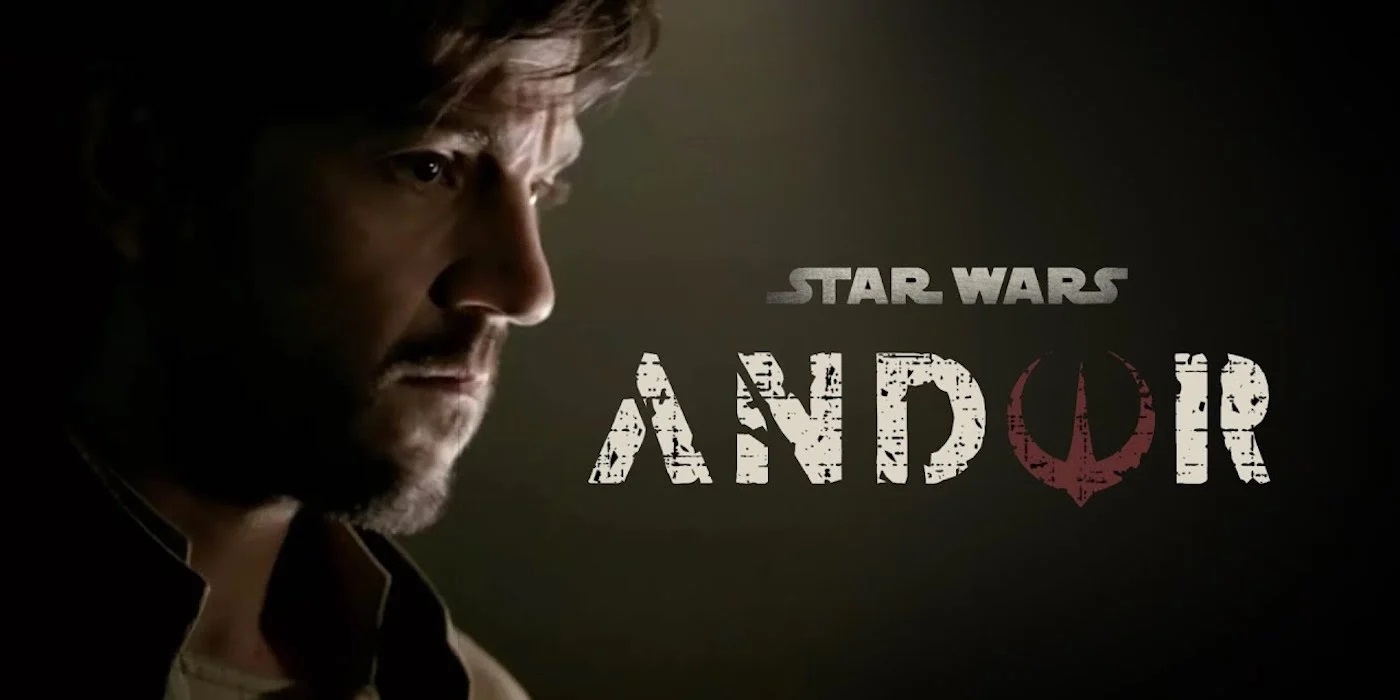

CONTINUITY
These three episodes deal with the aftermath of the Aldhani operation. The planets Niamos and Segra Milo, and the moon
Narkina 5, are seen for the first time, as is the planet Narinka, but only from space. Five worlds are the setting of these episodes:


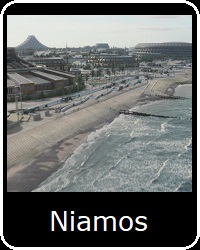

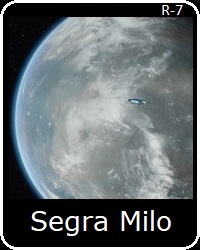
There is a time jump of about 3 weeks near the end of 'Announcement'. There is an additional one-month time jump in 'Narkina 5',
such that by the end of these three episodes it is about 2 months after the robbery on Aldhani.
- News broadcasts carry news the Aldhani robbery, calling it "distressing" and "a terror attack", and reveals certain details including the multiple
fatalities, the loss of over 80,000,000 credits, and that the assailants disabled the stolen ship's tracking device. These details were said to
have been given by the ISB, who also made it known that "all military personnel at the garrison have been replaced and are being
interrogated" and that "134 Aldhani residents have been taken into custody under suspicion of abetting the terrorists." This suggests
that the ISB can be reached for comment by journalists, or that they sometimes make press releases with declassified information.

Why are the Ferrix and Aldhani incidents portrayed as significant, and why is the news of the Aldhani robbery broadcast to
the galaxy? It is clear that the Empire made a big deal out of the Ferrix incident because it suited their political purposes,
however the dialogue seems to suggest a minor firefight where two local security officers were killed is both unusual and
a "fiasco", which is hard to believe. In the United States alone, dozens of police officers are intentionally killed in the line
of duty each year at a minimum, where the population is a mere 330 million people. The Empire comprises hundreds of
thousands of worlds, with a population in the trillions, and is more repressive than the United States' government in most
respects. This might seem to suggest the Empire's strong police state and heavy-handed tactics have been very successful
at preventing crime, however it is usually the case that the intentional killing of police officers increases along with a given
state's increased oppression. This is also beside the point, since the heavily-policed Empire is far more decentralized, vast,
heavily populated, and difficult to monitor and police. The death of two officers can hardly be a major event. The Aldhani
heist also seems like something that should have been occurring often enough in this galaxy that it wouldn't be a top story
on the news, but at the same time such a daring and expensive attack is certainly more noteworthy than the Ferrix events,
and is more likely to have been unprecedented. It is not clear exactly why the Empire allowed this news to be broadcast,
considering that it makes them look unprepared and vulnerable, and that the Empire controls legal broadcasting. News of
the heist is good for anti-rebel propaganda, and serves to justify their harsh new policies, so it is possible they were eager
to let the news out. It is also possible that enough supposed press freedom exists that word of the heist became known
and the Empire was obliged to comment, or sought to get ahead of the news by announcing the details themselves.
It is possible that both the rebellion and the Empire were eager to announce these events, as both sought escalation.
Main Article: Galactic Population
- Colonel Wullf Yularen was last seen 14 years earlier in The Clone Wars 'Old Friends Not Forgotten' (S7E9), when he was an Admiral in the Republic
Navy. He has since become an important member of the ISB, and is one of the heads of a department concerned with internal affairs and
administrative oversight. Yularen was developed from an unnamed character in Episode IV with no lines, first seen on Tarkin's command staff
aboard the Death Star, and later seen walking a corridor. His rank insignia identifies him as a Major General in the Imperial Army. He was
first named in 1995 by a playing card game, which gave him the designation 'Colonel Yularen'. The fact that this rank insignia cannot stand
for Colonel based on the other insignia established by canon did not matter, since a card game is not canon material. He was subsequently
given a backstory in canon material as a Republic Admiral during the Clone Wars. The creators of disney SW chose to try and expand upon
Yularen within the Empire, but unfortunately imported his supposed rank of Colonel from the legends game in creating their Rogue One
rank insignia chart, and established it in disney canon in Rebels. This would be an absolute continuity error if he were in the regular military,
however the addition of the ISB from legends into disney canon allows a way to explain this discrepancy, as higher-ranked officers in police
forces are usually Colonels, rather than Generals. It has therefore been established that this insignia represents a Colonel within the ISB,
however if it is used for that rank with a regular military officer in the future, that would be a continuity error. Lucasfilm has begun to
compound its rank insignia confusion with further nonsense as a result of not understanding this problem. Yularen and a background officer
from Rogue One, Captain Jeems, are the only two ISB officers seen thus far who use red-based bar insignia rather than the blue-based
usually seen for the ISB. Yularen and Jeems seem to be part of a department whose focus is on internal matters, while the other ISB officers
with blue insignia are more commonly seen since their departments are outwardly focused. The specifics of this have not been established.
Main Article: Ranks and Rank Insignia
- The Imperial response to the Aldhani heist is to impose a tribute tax of over 400 million credits, equal to five times the amount stolen, levied on any sector
"harboring partisan activity." The Empire will prohibit "any local custom, festival, or tradition" which is used as cover for rebel activity. The Public Order
Resentencing Directive (P.O.R.D) is invoked, which makes "any criminal act, with even indirect effect on the Empire" into a "Class One Offense", which
means it will be regarded as an action against the state. All prison sentences are to be re-evaluated to retroactively increase their sentences to match
the new standards, and "all outstanding fines and levies are to be paid in full", presumably in lieu of imprisonment for any who default. Emperor
Palpatine instructs that "the ISB will be taking the lead going forward", and will henceforce take operational precedence over the regular military,
as seen in material dated after these events. This includes full access to military resources. The Emperor also convened an emergency session of
the Senate to propose a legislation package of bills and amendments designed to give the ISB a free hand "in all matters of surveillance, search,
and seizure." This is seen to have passed, due mostly to Palpatine's allies easily accruing a majority in the Senate on most security issues.
- Luthen Rael and Mon Mothma had been working towards "building a network", which Luthen assesses has been successfully built, and now must be used
as it was always intended. The growing size and scope of the operation require increasing funding, which is becoming more difficult due to Imperial
scrutiny of financial systems intended in part to forestall such activities. This doubly justifies the Aldhani operation in Luthen's reckoning.
- The Bureau of Standards is an Imperial administrative agency which answers to the executive authority of the Emperor and the Imperial Council. Its policies
and enforcement rules are as defined by Senate legislation. Departments at the Bureau of Standards include Fuel Purity, Weights and Gauges,
Redundancy, and Verification. Its headquarters was located on Coruscant, as is the case for all Imperial state agencies.
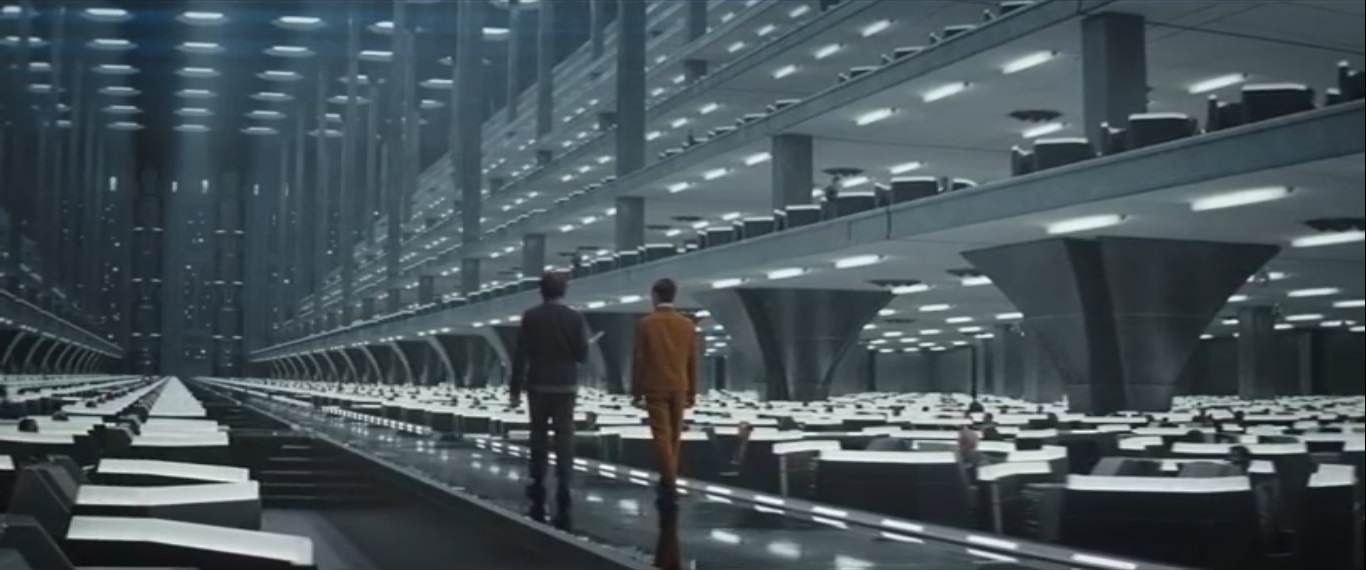
- "Receiving messages is just as dangerous as sending them", in terms of a potential location trace or general identification.
Main Article: Hyperspace Communications
- There is a notable increase in excitement about political ideas amongst the general population, in particular amongst the educated and established members
of society, such as Tay Kolma. He states that has "done more than grow weary of the Empire", that his politics have become "a bit strong", and that he
suspects Mon Mothma might be unaware "how far afield some of us have taken our political allegiances these days." Other characters and discussions
seen in this series also give indications that this is becoming a politically charged time, not unlike the period leading up to the Clone Wars. The cause of
this is due to the extreme stress the Empire and its policies place on society, and the natural pendulum swing of energy within any society. This is almost
exactly 20 years after the growing Separatist Crisis, which culminated in the Clone Wars. This left the galaxy with unsettled political and social questions,
but also widespread war-weariness, a single remaining military force of consequence, and a tendency away from the ideological towards the practical.
As is always the case, it takes about one generation for the pendulum to swing back to the ready position for new conflict. There is now an entire new
generation who did not experience the last war and has reached adulthood, there has been time for those eager to resist to gather and rearm, and
there is a new climate of politically charged ideas amongst both the young and the old, whose war-weariness has been replaced with discontent.
The Empire's polarizing and overbearing policies and actions only serve to accelerate and exacerbate this natural social tendency, which makes
the political discourse of those in opposition to the Empire increasingly extreme, revolutionary, and inversely polarized.

What is the Separatist Coalition? Mon Mothma tells Kolma that "the Grand Vizier has infiltrated my Separatist Coalition
meetings." Is this supposed to be the political side of Mothma's anti-Palpatine efforts, seen in their infancy in a deleted
scene from Episode III? If so, this is a continuity error, both because Republic loyalists who were in the opposition faction
in the Senate during the Clone Wars were very explicit about not being Separatists, even when Palpatine went beyond
anything they could accept, and most importantly because she would already have been arrested if she was known to
have any dealings with someone regarded as a Separatist. The politics of Separatism were made illegal by the Republic's
victory in the Clone Wars, and reformists in the Empire were routinely accused of being Separatists as a means of
gaslighting them. If, for example, a US Senator were attending meetings of the 'Confederate Coalition' 14 years after
the United States' 'Civil War' ended, they certainly would have been arrested for treason, or at least removed from office.
This is the one kind of politics, other than perhaps anarchism, which the Empire does not even pretend to tolerate, and
considering that Mothma's many powerful opponents are eager to move against her this would be ample justification.
It is also possible that this is a charitable association which she set up to help former Separatist worlds who have been
part of the Empire since the end of the Clone Wars, but have been subtly penalized under the Empire for their former
association. This would not be illegal, despite the ire it might induce from some quarters. Mothma specifically mentions
that her "driver is an ISB plant and reports on my secret humanitarian programs" immediately after mentioning this
Separatist Coalition, so this interpretation can be supported. If so, it seems odd that such a provocative name was
chosen for this group. If this is not the case, it is a second example of this series' confusion about the Separatists.
- Mon Mothma has "learned from Palpatine" the art of being a disingenuous politician who convincingly hides their ulterior motives. Her public persona has
become "a lie, a projection, a front", where she appears to be a principled Senator constantly in opposition to Empire's continual "overreach", but
unwilling to go too far out of loyalty to the unity of the galaxy and therefore its legitimate government. This is entirely consistent with her honest
personality during the later days of the Republic, and thus appears genuine. She maintains the appearance of trying to make a difference through
humanitarian programs which are "benevolent and useless irritations" to the Imperial government's policy of spreading general misery, while also
standing up against further expansion of the Empire's power in the Senate, despite limited success. This is the art of misdirection, which Palpatine
is a master of, as is now Mothma who says "I know they watch me, and I want that, because as long as everyone thinks I'm an irritation, there's
a good chance they'll miss what I'm really doing." Her plan is to increase her activities via a new "Chandrilan charitable outreach program."

Flashback events take place in 7959 (18 BBY), 13 years prior to the main story, on Ferrix.
This flashback is an illustration of Cassian's memory of his adoptive father's execution, which was obviously an event of
significant emotional resonance to him. His memory is triggered by physical and emotional similarities to his current
situation. Cassian was 15-years-old at the time of those events.
- The Empire occupied Ferrix at some point not long after the Clone Wars ended, likely within a few months, but probably
not immediately after the surrender due to its relative insignificance. A small clone trooper detachment of the Imperial
Naval Infantry is sent to Ferrix to "plant their flag", which suggests that Ferrix and the Morlana system were part of
the Separatist Alliance, or at the very least within a region of space that had been under Separatist control. It is very
likely that an interstellar megacorporation with its own domain located in the Rim like Preox-Morlana would have been
part of the Alliance, as was the case with many Corporate Alliance members, and they were precisely the kind of entity
which stood to benefit the most from a Separatist victory in the war. Planets like Ferrix which were remote, independent,
and self-sufficient were typically aligned with the Separatists. The Republic supporters throwing stones at the troopers
for being the Empire is probably meant to suggest the opposite: that Ferrix was a loyal Republic planet which is being
'occupied' by the Empire for some reason contrary to the logic of the Clone Wars, something which has been implied
in a number of disney SW projects whose creators seem to have trouble understanding the finer points of Sidious'
plan and seem eager to distance the Republic from the Empire. The Republic always was the Empire, a central point of
the prequel story, and there was no need for the Empire to 'occupy' planets which were loyal to it during the war.
The major exception to this were heavily-populated planets who would philosophically reject the Empire outright and
would pose a military threat if left to their own devices, such as Kashyyyk, Ryloth, or Mon Cala. Such worlds were made
targets during the war by the Sith leaders of both sides, to ensure they were either destroyed or occupied by Republic
forces for defensive purposes during the war, ensuring that post-war actions by the Empire to repress these worlds
could be presented as self-defense. Ferrix is not anything like one of these worlds, and thus did not need to be occupied
unless it had been Separatist. If it had been loyal during the war, this whole scene of troopers coming to Ferrix just to
'plant a flag' over a planet they already controlled but don't intend to administer directly is contrived and rather silly.
Main Article: Darth Sidious and The Plan
- One of Lt. Jung's ISB sectors contains the Bright Jewel Sector of the Mid Rim, where Ord Mantell is located. His detention numbers have "failed to keep
pace with neighboring sectors", probably in part because Jung is a rebel agent who probably tries to minimize his negative effect on as many
people as possible without exposing his loyalties or getting himself demoted for incompetence. He has suggested three theories as to why his
sector is behind its neighbors, one of which is "under-allocating harbor patrol units" which is apparently suggested by an analysis of detention
numbers compared to surprise inspections by superior officers. Major Partagaz suggests the first step in developing a strategy to combat this
mysterious problem is "a full audit of all hyperspace lanes leading to Ord Mantell." It is impossible to fully analyze these developments or
the ISB's strategies in response without knowing what the first two theories Lt. Jung had come up with were, as they were discussed off-screen.
- Major Partagaz personally created the ISB administrative sectors as an organizing principle for the work of the ISB Supervisors. As discussed in the prior
three episodes of this series, these ISB sectors are not directly related to the regular territorial sectors which were formed over millennia during
the Republic's many eras of expansion. The ISB sectors are far fewer in number, and each must contain several territorial sectors within their
bounds. Luthen's rebel network is aware of these artificial boundaries thanks to Lt. Jung, and has been exploiting this compartmentalization to
prevent the detection of their coordinated theft of sensitive Imperial equipment. Lt. Meero suggests the rebels don't "care about the lines we
draw on maps", which is actually incorrect since the rebels having been using those lines to their advantage. At the same time, her assertion that
the rebels are unhindered by artificial constructs unlike the ISB's investigation of their activities is accurate and poignant. The Imperial Emergency
Act passed after the events on Aldhani has unintentionally given Meero the means to circumvent the ISB's red tape to prove her theories.
- There has been a "focused, organized rebel effort to acquire highly-restricted Imperial military components", which has been largely succeeding for
some time prior to these events, but of which the ISB is now aware. Analysis of "unfiltered Sector Crime Reports" has proven "a link between
the theft of our most secret equipment and its distribution to rebel groups across the galaxy."

Events jump forward about 3 weeks.
The events on Niamos at the end of 'Announcement' where Cassian is arrested and charged take place about 3 weeks
after the rest of that episode. In 'Narkina 5', Cassian is subsequently shipped to the moon of the same name, which at
most would take less than a day assuming hyperspace travel was utilized. Shortly after his departure from Niamos,
Syril Karn on Coruscant is mentioned to have been at the Bureau of Standards for "less than a month". After Cassian
arrives on Narkina 5 and completes his first work shift, the prisoners indicate that the Public Order Resentencing Directive
seen being implemented in 'Announcement' took place "last month", and that "it's been a tough month here waiting for
news." Based on this information, the time jump at the end of 'Announcement' must have been approximately 3 weeks.
- Niamos is pleasant, terrestrial planet located near to the Perlemian Trade Route, on the edge of the Vorzyd Sector, in the extreme north of
the Slice region of the Outer Rim. It has ample water including large oceans, and features an agreeable climate for Humans and others
who enjoy similar weather and temperatures. Its regions include a tropical zone with a warm and enjoyable climate, wherein can be
found resort cities located on Niamos' oceans. It is likely that a planet such as this, which would be widely considered idyllic, has
significant settlements and cities beyond the resort cities frequented by tourists. There is an ecosystem which may be native or
transplanted, which includes plant life and flying animals. Its society seems to be fairly relaxed, at least in the resort cities.
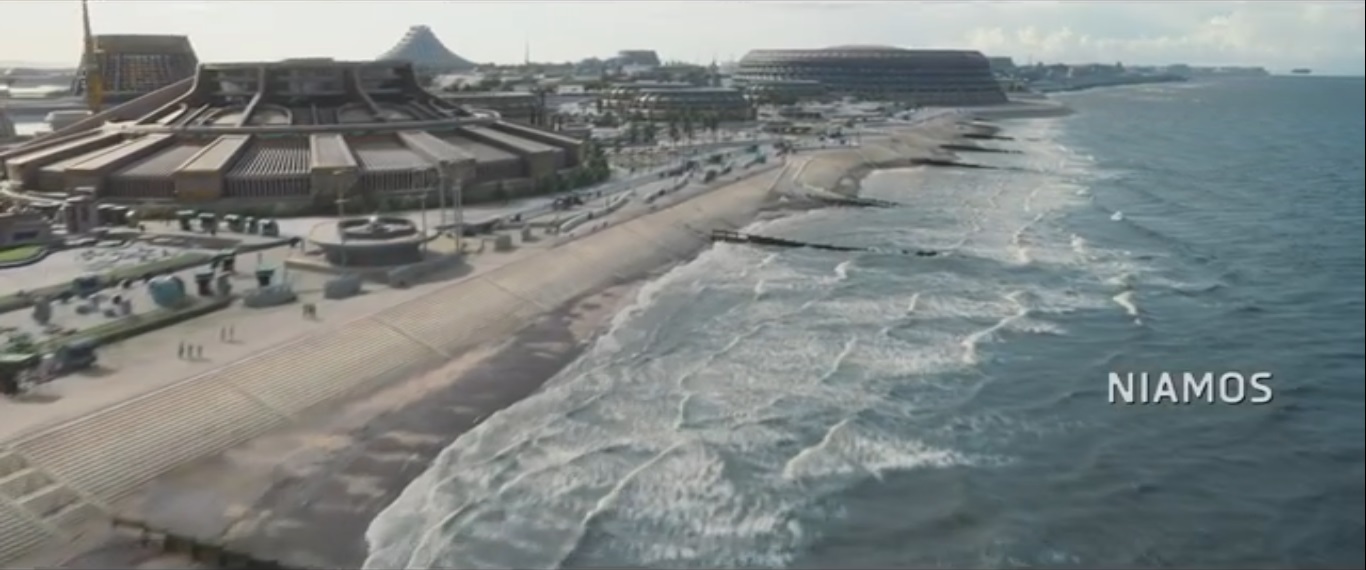
- Cassian and his girlfriend Windi have been regularly enjoying Peezos and Revnog. Supplements indicate that a Peezo is a stimulant available in
pill-form. Revnog is the alcoholic drink which they "weren't supposed to serve" on Morlana 1. Its availability in a store on Niamos suggests
this restriction is not galactic, and has something to do with Preox-Morlana's regulations or the society of its planets. Windi wants Cassian
to get more of "the greenie Revnog", suggesting that this substance comes in different varieties.
- The Empire has detention quotas to meet, in order to supply the state with a steady stream of forced laborers. This has only been increased in response
to the Aldhani incident. As a result, the Empire is arresting people for mere suspicion, or simply because a member of security forces didn't like
an individual's attitude, or both. After being arrested, individuals are sentenced based on the crime they are charged with regardless of evidence.
There is no forum to present a defense, and anyone who tries to offer any objections will additionally be charged with "Resisting Judgement."
The defendant before Cassian was charged with "loitering at a crime scene" and "walking an unleashed massif" which led to the additional
offense of "animal fouling." The defendant is given a 4-month sentence for these offenses. Cassian, under the pseudonym Keef Girgo, is charged
with "civil disruption", "anti-Imperial speech", "fleeing the scene of anti-Imperial activity", and "attempted damage" to Imperial property, the last
of which is a reference to his struggling against a security droid which was choking him. He is given a 6-year sentence, which the judge mentions
would have been a 6-month sentence before the post-Aldhani "change of guidelines." The judge has a machine which imprints the name of each
defendant, the crimes they have been found guilty of, and their sentence on a data disk which presumably includes their court and police records.
A close-up shot of the imprinting of the disks for Cassian and the defendant before him are shown, however the writing on the disks bears no
relation to the crimes discussed in the dialogue. These are supposed to be 'Easter eggs', which are hard-to-notice jokes or meta references
inserted into media for the sake of fun, something Lucas inserted with some frequency in his SW material. The disk for the defendant before
Cassian names him Richard Stevenson, which seems to be a made up name with no connection to anyone on Earth who shares that name, and
lists crimes which were not those spoken in dialogue. Cassian's disk lists his name as Keith Seymour, who was the set decorator concept artist
for this show, and lists crimes unrelated to the dialogue. This 'Easter egg' is way too noticeable, doesn't really have a good purpose, and is
predicated on the notion that SW fans can't read English words just because they are written in the Aurebesh alphabet. Disney-Lucasfilm is also
terrible at using the Aurebesh alphabet, as they always fail to use the letters 'CH', 'AE', 'EO', 'NG', 'OO', 'SH', and 'TH', and instead use only the 26
letters which are also used in the Latin alphabet to write modern English. The name Keith, for instance, only has 4 letters in Aurebesh, not 5.
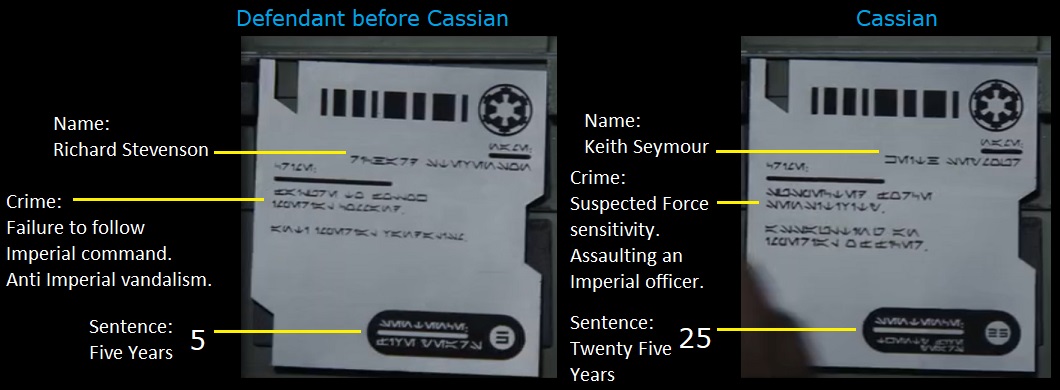
- Narkina 5 is a planetary moon orbiting Narkina, a gas giant planet located in the Abrion Sector, in the Slice region of the Outer Rim. Narkina 5 is
a watery world mostly covered by oceans, however it has significant landmasses including islands of all sizes in many regions of the moon,
as well as small continents found near each of its polar regions. Its land regions were fairly desolate, with only sparse vegetation, however
there was an abundance of freshwater creatures in the many lakes and rivers, which supported small communities through fishing.
The construction and activity of the Imperial factory prisons in one region of Narkina 5 polluted the nearby land, adversely affecting
the local fishermen. The choice of this world for these Imperial facilities suggests that the moon does not have a significant total population.
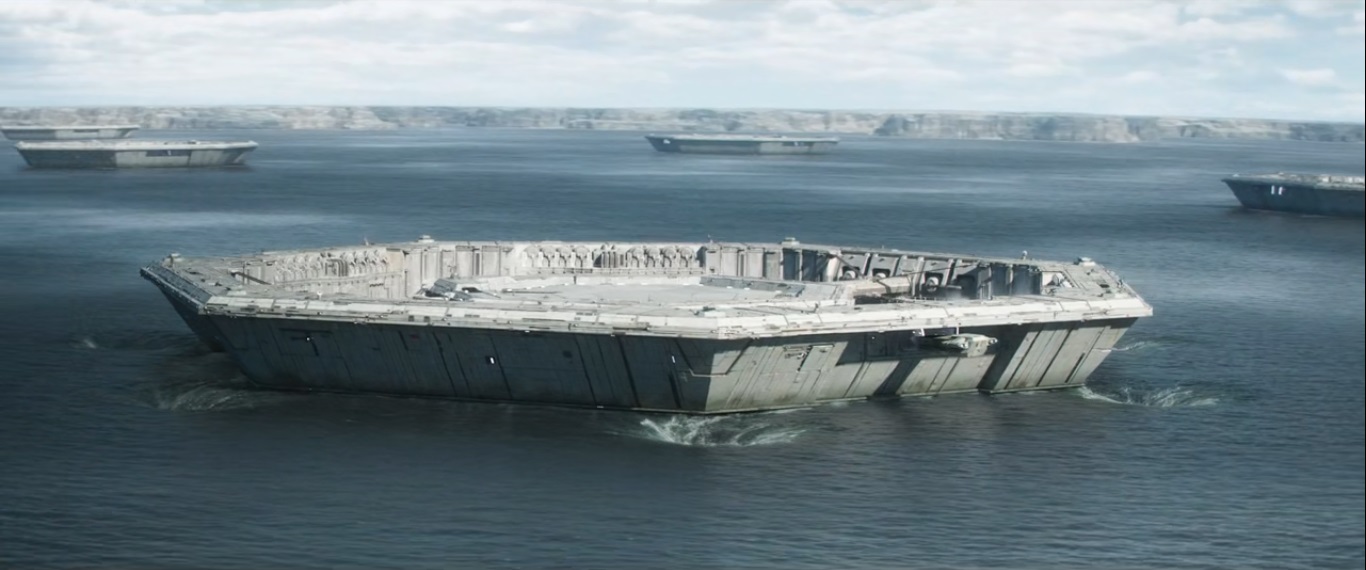
- The date of Cassian's theft of an Imperial Starpath unit from Steergard Naval Yard is not known to the Empire because Imperial military leaders at
Steergard were "afraid to disclose its theft and thought they could hide its absence." This is apparently a prevalent, galaxy-wide problem.
The Empire's punishments for failure motivate its agents to do their best work, but also leads to routine non-reporting of failures.
- Lt. Meero wants expensive resources for her investigation on Ferrix, which include "full planetary comnet, full garrison tech package, Series Nine
spectrum surveillance, local agent funding," and a "Code Droid." Local agent funding and a Code Droid to analyze any encrypted messages
or data are fairly self-explanatory. A "full garrison tech package" suggests the local troops she will be using for her operation will be provided
with the full range of Imperial technology, some of which is not given to most units due to expense concerns. A "full planetary comnet" to
monitor every last incoming and outgoing signal in detail, as well as "Series Nine spectrum surveillance" on the planet will ensure that
the Empire will be listening "if someone there is talking." Presumably the local garrison was already using a basic level of spectrum surveillance
as part of its routine operations since arriving on Ferrix, with Series Nine representing a much higher level system, probably the highest level
available. The need to go to these lengths to fully monitor all transmissions from a planet with a small and localized population, like Ferrix,
suggests why it is ordinarily possible to circumvent Imperial monitoring of signals if proper precautions are taken.
Main Article: Hyperspace Communications
- Prisoners who are "assessed as labor-worthy" are usually sent to Imperial prison factories like those on Narkina 5, or other labor camps which are
likely varied in their function and purpose. The Narkina 5 facilities utilize several practices which are likely the standard for Imperial prison
facilities, including minimal staff, automation, isolating subgroups of prisoners, and technologically-enhanced prisoner retention and
punishment systems. These facilities are more dystopian and dehumanizing than older Imperial prison methods, but are heralded as
progressive due to "calm, sanitary conditions" and "minimally invasive enforcement techniques" made possible by these scientifically
designed prison systems. The work schedules and production output targets are all dictated and internally managed by the physical and
social system inherent to the prison's design. The use of the lethal, shock inducing floor as the primary means of prisoner control allows
these facilities to operate with a minimum of staff, which is beneficial since dealing with staffing limitations is an issue which effects many
areas of Imperial administration. The Narkina 5 facilities are divided into an intake level above seven levels of factory below, each with
seven workrooms with seven tables per room and seven men teams working at each take in two shifts, meaning that each level has fourteen
units who have their own cell block during their dormancy period. Cassian is part of Unit 5-2-D, which signifies Level Five, Room Two, and
D for Day shift. Kino Loy is the 5-2-D manager, who is a prisoner assigned to work as a unit's foreman. The total population of prisoners
at each Narkina 5 facility should be approximately 4802. Each day and night shift works for 12-hours each day. Productivity is encouraged
by rewarding the most productive table with flavor for their usually tasteless prison rations, while the slowest table is punished by shock.
- Ruescott Melshi is one of Cassian's fellow prisoners and a member of his work table team. He was first seen in Rogue One, five years after these events,
as a Sergeant who leads a rebel squad during the Battle of Scarif. He will be killed along with the rest of his unit during those events.
- Mon Mothma is seeking votes in order "to stall the Emperor's latest overreach", which is presumed to mean the Imperial Emergency Act and the other
policies being put in place after Aldhani, including the P.O.R.D. The new Imperial legislation is "definitely having an effect" which is noticeable to
the public at large, and the new banking regulations "are making life difficult" for the wealthy to move and use their own funds without Imperial
monitoring. The Empire is "staffing up Imperial auditors" for this purpose. Mothma is seen attempting to sway the positions of a group of Senators
whose names are Dhow, Slorda, Teenar, and Vyvin, presumably chosen because they might actually be flexible and independent enough to listen
to argument. Slorda's opinion is that "Palpatine's frustrating, yes, we agree. Too easily provoked? Yes. Overreactive, but says what he means."
Teenar calls this an "understatement", suggests the discussion about Palpatine should be in regard to "legislation, not speeches", and is clearly
concerned about the idea of "surveillance and prosecution without limit." Mon Mothma says that Palpatine's call to defend "public order" is
intentionally nebulous, which Dhow agrees is "an awfully big box." Vyvin's opinion is that "the Emperor's primary charge is to protect us" which
she believes is "what the P.O.R.D. legislation will do", suggesting that Aldhani is evidence of what happens when there is "too little" Imperial
protection and that extra security is needed because "these are dangerous times." Slorda seems to agree with her sentiment, suggesting that
"if you're doing nothing wrong, what is there to fear?" Mothma again points out that the problem is how widely and arbitrarily the Empire can
extend the "definition of wrong." Its clear that Teenar and Dhow are likely to vote with Mothma, while Vivyn will be voting with Palpatine's allies.
Slorda is less committed, however he seems unconvinced by the objections of the other Senators and will probably also vote to keep the changes.
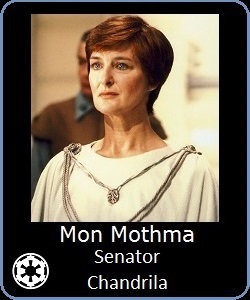

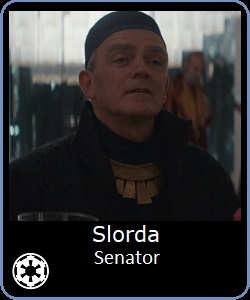


- All of the prisoners in Cassian's unit had their sentences doubled about one month earlier after the institution of the P.O.R.D. They were hoping that
it was causing a backlash amongst the public, or at least a debate, and are disappointed that Cassian hasn't even heard of it before. Although
it may not be the topic of conversation outside of politically interested circles, Cassian has been lying low and is probably not a good example
of the common person's knowledge about this. It is being discussed on Coruscant, and the effect on the average person is cited as notable.

Events jump forward 30 days, as shown on the screen in Cassian's cell indicating his remaining sentence.
- The communications equipment that Bix has been using to contact Luthen is a "fractal radio unit", which allows for coded transmissions to be sent
using hyperspace radio. Her last signal, which Luthen suspected was "the ISB working her radio", leads Kleya to insist they shut down their
communications with Ferrix. This is accomplished by not acknowledging the incoming code, and even more concretely, by not monitoring
the specified frequency. This will prevent any possible trace of their set by even monitoring incoming transmission. The ISB was not who
was sending the signal, but they had used their comnet and spectrum surveillance to isolate the illegal tower Bix was using.
Main Article: Hyperspace Communications
- Segra Milo is a terrestrial planet located in the Jospro Sector, in the Slice region of the Outer Rim, a sector which is adjacent to both the Mid Rim and
the Perlemian Trade Route. According to supplements it is slightly smaller than Earth. Segra Milo is habitable with an active water cycle,
including moderate cloud-cover and expansive oceans. Its surface is dominated by land arranged in large, hemispheric continents. There is
at least a limited ecosystem, which may be native or the result of terraforming. It is unknown if there is a significant colonial population on
this world, however the presence of Imperial patrols suggests it is known to be inhabited to some degree.
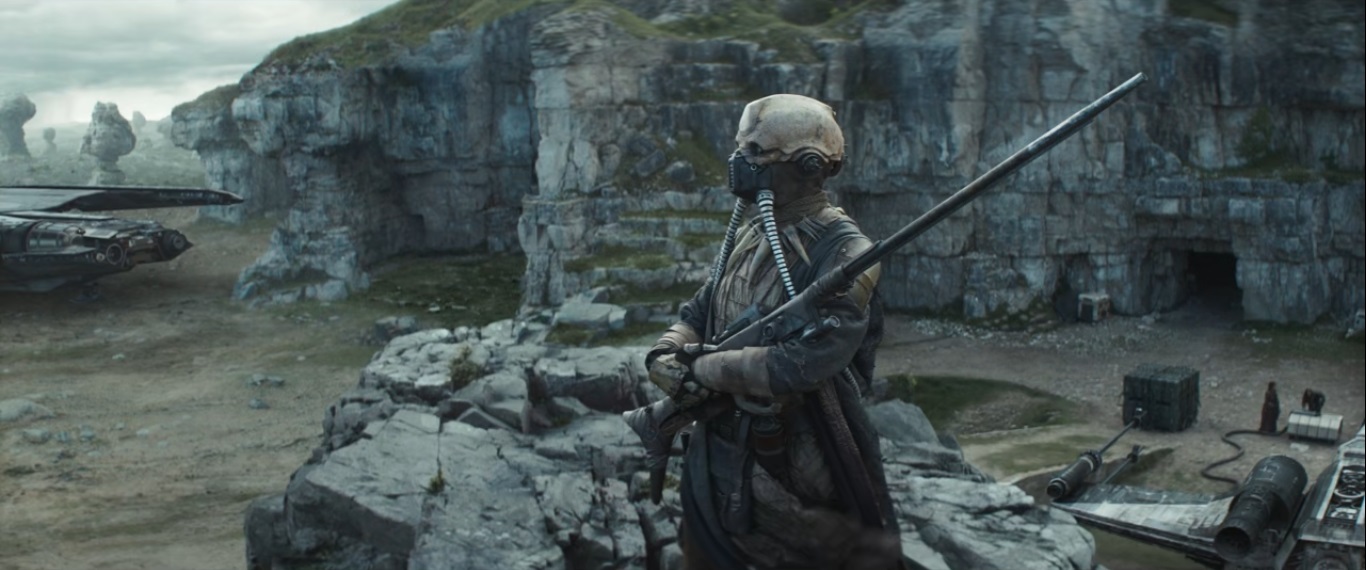
- Saw Gerrera was last seen in just under 13 years earlier, in The Bad Batch 'The Summit' (S2E15), at the very end of 7959 (18 BBY). He will be seen
again in this series in 'Daughter of Ferrix', after which his next appearance is in Season 2 in 'Ever Been To Ghorman?', set 2 years after these events.
- Saw describes Luthen as someone who is "playing behind the scenes", constantly "fighting with people who agree with you" as in other anti-Imperial
forces, who visits Saw to "scold" him but also to bring him "toys" which are "not for free." Luthen describes himself as "a coward" who is
"terrified the Empire's power will grow beyond the point where we can do anything to stop it", and as a result tells his fellow anti-Imperial allies
that "we'll die with nothing if we don't put aside our petty differences." The other rebels which Saw scoffs at working with include Maya Pei who
is a Republican like Mothma and Organa, Anto Kreegyr who is a Separatist, and the Ghorman Front and the Partisan Alliance, which Saw
considers to be "Sectorists", "Human cultists", and "galaxy partitionists." Luthen describes Saw's Partisans as "hiding in cold caves, and begging
for spare parts", but also considers their operation to be more "flush" than the average rebel group. Luthen offers Saw "a full set of Imperial
drive adapters and "three sealed Steergard targeting deflectors" to provide "air support" with his small squadron of starfighters for Kreegyr's
planned attack on the Imperial power station at Spellhaus. Saw describes Kreegyr as "an ox, slow, and stupid" and suggests that he won't "put
my people at risk for someone else", and that he is the only one with "clarity of purpose" and therefore refuses to work with ideologically
opposed groups who are "all of them lost." Luthen indicates that Kreegyr is "strong", that the rebellion needs "to pull together." Luthen
correctly observes that long-term rebel victory needs "the Empire to help", specifically that "we need them angry. We need them coming
down hard." because Imperial "oppression breeds rebellion." Luthen also suggests that Saw's ideology is tantamount to anarchism.
- As seen in Rebels ISB officers now have a degree of seniority on authorized missions over higher-ranked military officers. This authority is not
all-encompassing, but includes anything which could be considered covered by the ISB officers' mission. Military officers are required to
give any resources or assistance to the ISB to complete their mission, and will not want to be seen as obstructing ISB operations.
- The ISB uses all sorts of enhanced interrogation methods, which is the polite term for torture. Dr. Gorst is employed by the ISB for such purposes and
has recently developed a "unique interview system" which some at the ISB "are very excited about." The ISB interprets resistance to their
questioning as evidence of someone hiding something, and increases the severity of their interrogation.
- Salman Paak attended a Separatist meeting two years earlier on the planet Jondora where "he met a woman who said that if he was serious about politics,
he might like to act as liaison for Ferrix when he returned home." He was sent the fractal radio unit which Bix was using to contact Luthen. The woman
who recruited Paak was not interested in "generating political activity on Ferrix" but wanted to use the planet's "unique commercial position to acquire
stolen Imperial equipment." Paak was paid to keep the illegal transmission tower with the fractal radio set active.
- Dizon Fray is a habitable moon of an unidentified planet, located in the Dominus Sector of the Slice region of the Outer Rim. It was the homeworld of
the Dizonites, a sentient species described as "quite unusual" and "extremely hostile to the concept of an Imperial refueling center that was
being planned." They were so violently resistant that the Empire gave its commanders "permission to use any means necessary." The Empire
records and transmits to command its decisive actions, including the massacre of the Dizonites, as "proof of mission", ensuring that its
officers and soldiers carried out their orders no matter how objectionable. The Dizonites made a sound as they died, described as "a sort of
choral, agonized pleading" which was "quite unlike anything anyone has ever heard before." Humans who listen to the sound are driven to
"various states of emotional distress." Dr. Gorst and the ISB have modified the recordings slightly, layered and adjusted them to be used for
interrogation torture. They "found a section of what we believe are primarily children, which has its own particular effect."
- Mon Mothma is part of the minority in the Senate which is standing in opposition to the Emperor's new public safety legislation, which she decries
as "overreach." She calls P.O.R.D. "the next step on an all too predictable march toward complete unchallenged authority." She asserts that
the Senate is responsible first to its constituents and second to "protect the power and independence" of the Senate, which is a "temple" of
democracy. Its clear she has sizable support in the Senate, and is directing her remarks towards any Senators "who've come with open minds",
but that hers is a minority opinion on this issue. It is also seen that many of those strongly in favor of the Emperor's legislation refuse to even
listen when the opposition speaks, and either jeer them, leave the Senate chamber when they are speaking, or don't even attend during
opposition remarks. These are all signs of absolutist politics and childish leaders, sadly all too familiar to 21st century politics on Earth.
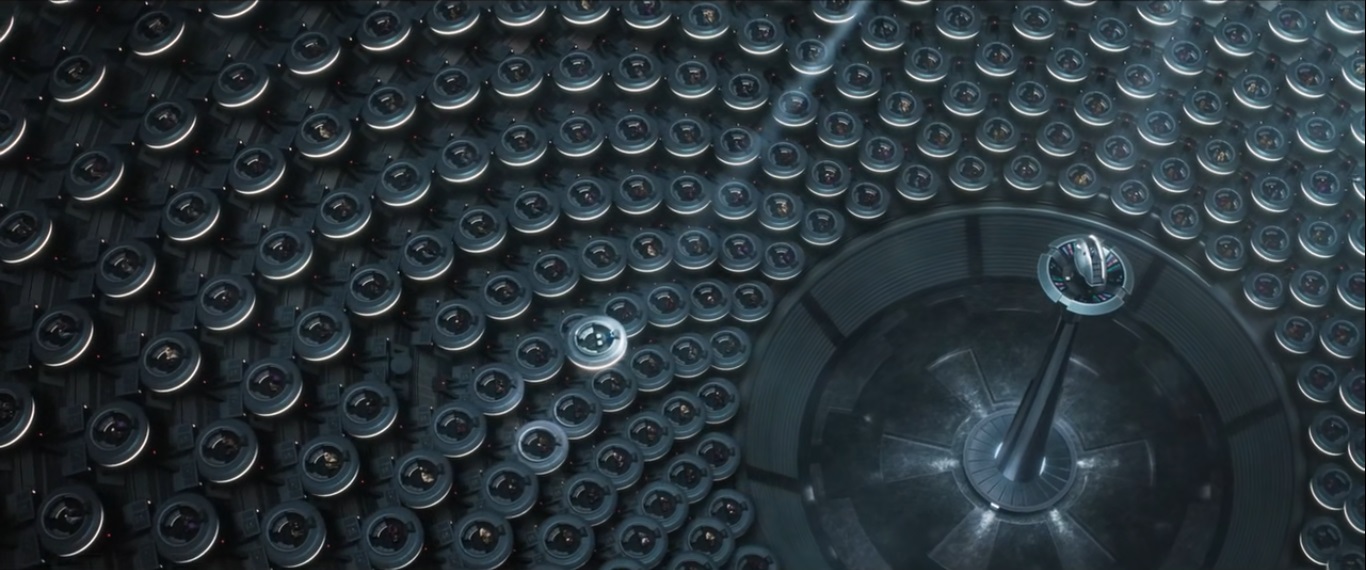
- Tassio Moon is the satellite of an unidentified planet located at some unidentified location in the galaxy. It is apparently somewhat famous, at the very
least as a place which is desirable for shopping. Vel Sartha apparently stopped there before her second visit to Coruscant after the Aldhani heist.
- Mon Mothma's previous activities leave her with a unexplainable 400,000 credit hole in her accounts, which needs to be "papered over" according
to Tay Kolma. Mothma was hoping to establish a line of credit for more activities, but now needs to find 400,000 extra credits she doesn't have
or risk the new Imperial financial investigators targeting her. Kolma suggests that "there's no trouble at all unless they scan the accounts, but
that's coming. Time is not unlimited." Kolma suggest Mothma will have to do business with Davo Sculdun, because he is "a Chandrilan banker
with treasury relationships, and a book of business that's incomprehensibly huge", and also because he is used to helping wealthy clients who
are in need of 'creative accounting' due to their activities which are either socially compromising or at least partially illegal.
- A pilot from Kreegyr's rebel group was captured alive and successfully interrogated by the ISB revealing to them the plans for the attack on Spellhaus.
He had one of the Imperial masking devices stolen from the naval yard on Lozash in the prior year. This "masking device" might be a cloaking
device, or a similar peice of equipment, which hides a ship from scanners and scopes, however this could be an entirely separate device which
is capable of simply 'masking' a ship's signal as another kind of ship. The pilot was apparently captured a customs check while on his way to
the Kafrene system. The ISB decides to destroy his ship and abandon it having made it look like an accident. They suspect that Kreegyr will be
suspicious, however it is their best option as keeping the pilot or releasing him alive will probably cause Kreegyr to call off his planned attack.
- Major Partagaz wants an immediate meeting with Military Intelligence about Kreegyr's planned attack on Spellhaus. Military Intelligence is the Empire's
primary intelligence service, but whose activities are limited to matters of physical security, military assessment, and strategic preparedness.
The paramilitary ISB is the Empire's 'civilian' intelligence service, whose activities specialize in the general public, undercover operatives, and
matters of political concern. Nevertheless, most intelligence which interests Military Intelligence also interests the ISB, and the reverse is often
true as well. As a result, reports are usually shared and there is a great deal of inter-agency cooperation. Imperial Military Intelligence is divided
into an Army and a Navy branch to facilitate the collection and dissemination of pertinent intelligence within deployed units, however intelligence
is fully shared between the two branches, and top-level Military Intelligence officers on Coruscant work as a combined command. Military
Intelligence was also known as Clone Intelligence during the Clone Wars.
- A small, hand-held medical scanner available to the Empire in this era is able to perform a useful analysis of a patient quickly. The full range and limitations
are not known, however it is at least able to detect something as significant as "a massive stroke."
Main Article: Scanners, Sensors, and Cloaking Devices
ANALYSIS
The Aldhani heist was a public embarrassment to the Empire, less for the security failure it represented than for the lack of fear shown by rebel forces
in openly attacking an Imperial Military installation. The Imperial response is to punish civilians who may or may not support these actions, in part
because they cannot immediately punish those responsible but more importantly to discourage others from rebellious actions. This response is typical
of the Sith, as well as any authoritarian reactionaries, as they arrogantly believe themselves superior to the people who they see as disobedient children
requiring discipline. The Empire's specific actions amount to taxing the people's allowance, unannounced searches of their rooms, monitoring their
activities and friends, and grounding them longer, except for the chores they are given as punishment. Attacking the people's finances, luxuries, and
freedoms also reflects the materialist concerns of the Sith or most imperialists, who believe that wealth and physical power are the only matters of
consequence. This strategy is doomed to backfire as most civilians do not see themselves as helpless children, however there is little option but to
respond in this manner from a strategic standpoint, and these are exactly the kind of tactics that Sidious and top Imperial leaders desire to employ
openly. Gradually normalizing the oppressive security-state is a central goal of the Emperor, and the inevitable rebel actions such as Aldhani give
the political capital necessary to earn broad support for invasive surveillance of citizens, restrictions on cultural traditions, and the large-scale
expansion of forced labor camps. The Empire had no choice but to treat Aldhani like a robbery, since it cannot publicly validate the rebels' politics,
and it must paint them as dangerous criminals. This is also why they are branded as terrorists: the word always used by oppressive authorities to
describe politically-motivated violent actors to give the impression that they are unreasonable people who cannot be negotiated with and to keep
the public from examining the merits of their politics. Although Aldhani will inspire many, and the Imperial response will only fuel the rebellion's
growth, it will succeed in convincing a great many people that the rebels are responsible for their suffering, and do not care about the people either.
The Empire also has the benefit of full control of the media and narrative, while citizens fear openly discussing their objections to Imperial policies.
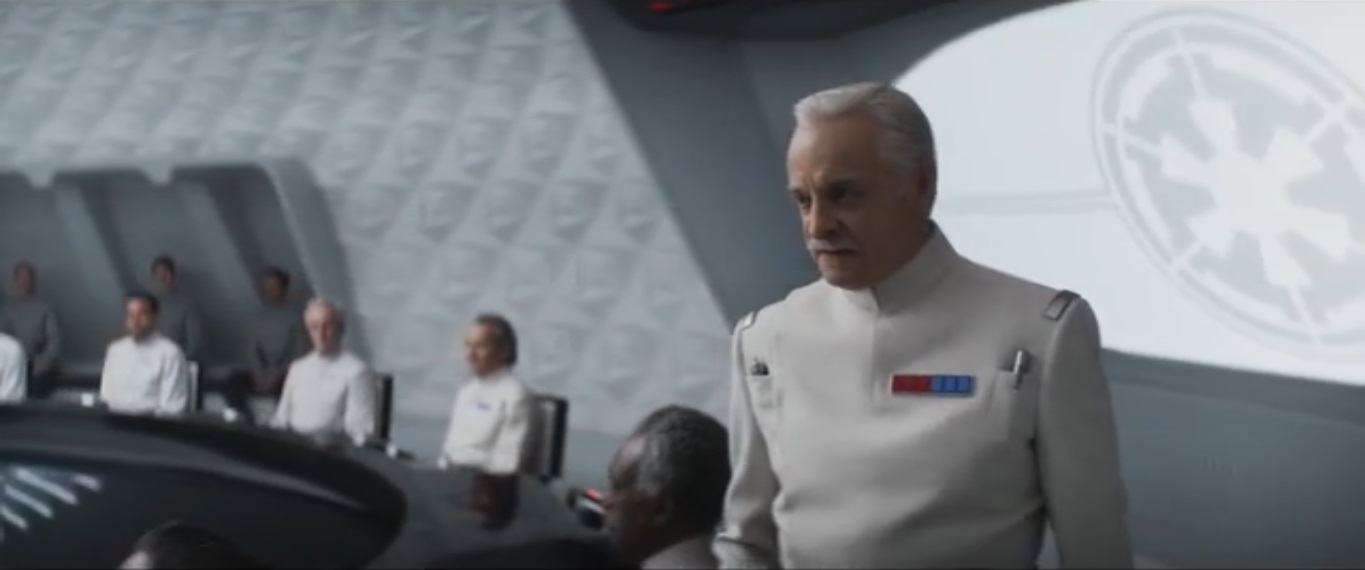
The rebel attack on Aldhani was out of pragmatic necessity to secure funding, however it was more valuable to them as an "announcement" since
it is essential that they politicize their activities. The rebellion cannot achieve a material victory against the Empire, and must therefore achieve
symbolic victories which can be put to political use. Mon Mothma is not happy that their first major action is causing countless, uninvolved people
to suffer, however Luthen knows that the dialectic response is precisely what the rebels must use if their rebellion can ever grow into a revolution.
The ordinary Imperial oppression was mechanical and based around pragmatic realities of economy and security. People may dislike it, but its
casual and incessant manner fails to inspire emotional reactions or political movements, except in those who are politically astute or have suffered
personal tragedy at the hands of the Empire. Luthen describes this as the Empire "choking us so slowly, we're starting not to notice." An act of
political terrorism inspires thoughts of revolution and the possibility of actual success against the Empire, and the corresponding increase in
Imperial oppression will be seen by many in a political and emotional context. The inevitable overreaction of the Emperor and his agents will
engender more rebellion, setting in motion a cycle of dialectic responses which can eventually lead to a political crisis and a revolution. This forces
the Emperor's hand, requiring him to increase the speed and severity of his oppression to dangerous levels to avoid civil war in the short term,
which only increases the likelihood of civil war in the long term. The rebels need the Empire to come down hard against innocent civilians, and
the harder they strike the better. Those like Mothma are conflicted since they see themselves as the good guys, and believe that the protection of
civilians is precisely the kind of difference their movement has to stand for. Luthen, on the other hand, realizes that people suffering is the plan
and that the rebels must act without rules going forward, for if they are not willing to go as far as the Empire there is little hope of defeating it.

The Imperial Courts have evolved from their immediate post-Republic form into a processing center for citizens without enough status or wealth
to avoid their grasp. As the Imperial forced labor system evolved, crimes were given harsher sentences, and the definition of crimes expanded,
while Imperial enforcement was tasked with maintaining established arrest quotas. This ensured a steady stream of workers for labor camps,
penal colonies, and factory prisons. Citizens are routinely arrested for trivial matters, or simply drawing the attention of an Imperial enforcer,
and once arrested have essentially already been found guilty. Their subsequent appearance in court is a mere formality where they will receive
their sentence and be processed into the penal system according to the kind of labor they are suited to perform. Defendants who attempt to
defend themselves, even with good cause, are charged with "resisting judgement" which carries additional punishment. Judges and prosecutors
do not have to be enthusiastic about this program, but they too are under scrutiny and also have quotas to meet, and must not fail to execute their
directives. As a result, the Empire has effectively removed the humanity from the justice system and turned it into a machine to gather slave labor.
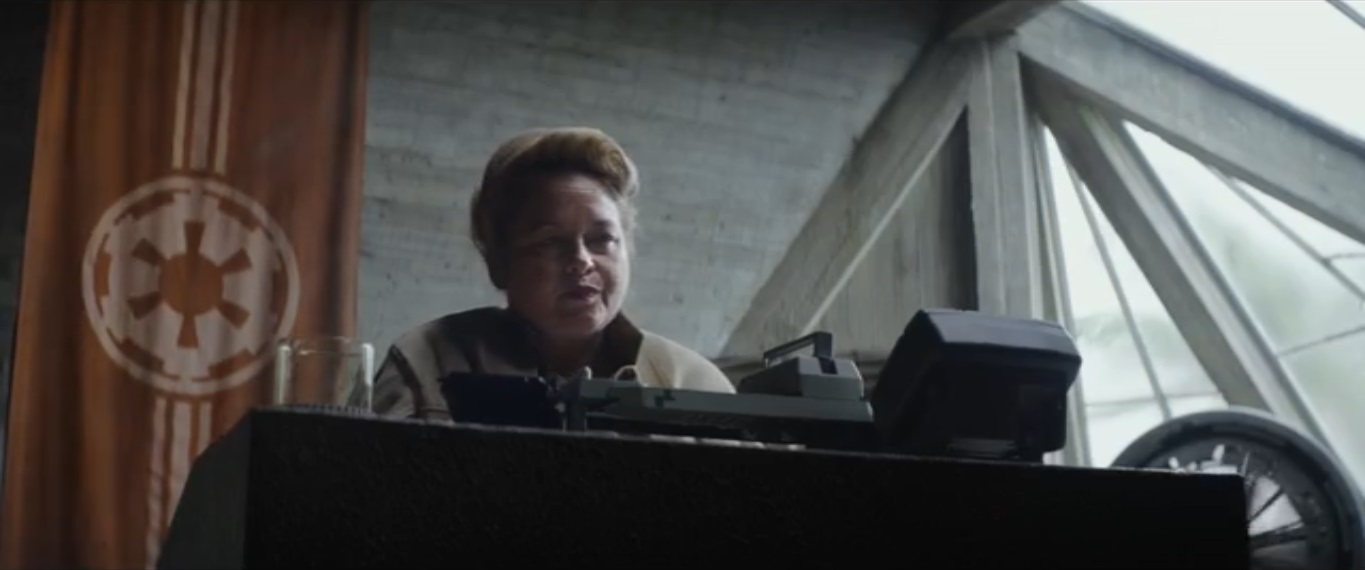
Forced labor is an element of the Empire, and any fascist or imperial state, which is essential to both its material production and to its philosophical
purpose. Organic laborers are cheaper to feed and house than the cost of purchasing, powering, and maintaining droids, especially when their
quality of life is of little concern. The total production capacity of Imperial prison labor in terms of machine fabrication, resource extraction and
processing, and raw physical labor was immense, and although it comprised a minor percentage of the Empire's total production it saved a huge
fortune on a galactic scale each year. Its value to the Empire would have been worth the effort for pragmatic reasons, but the primary reason why
empires use forced labor is the benefit it brings to their goals of order and control. Citizens who are rounded up into forced labor are either actual
criminals or they are otherwise lower-class individuals who either have no job that the Empire cares about or are simply not important enough to
avoid arrest. This keeps citizens actively working to maintain legitimate employment, social standing, and to avoid the slightest sign of disorderly
behavior in public. Any who do not can easily fall into the Empire's net, where their entire lives can be monitored, controlled, and put to work for
the direct benefit of the Empire. The Empire can now release prisoners or gather more depending on their specific needs and those of the economic
establishment, although in practice the Empire did not usually choose to aid the private sector with the periods of parole which are typically seen in
capitalist economic systems. Fascist systems prefer labor to be directly employed and controlled by the state, and forced labor is a significant part of
why fascist governments and imperialist economic structures seem to be so good at industrial production and economic growth. Workers who can't
leave, do not need to be paid, and are only offered subsistence rations naturally increase the profitability of any operation, while at the same time
they are a segment of society which does not need to be offered a share of the benefits of economic growth. The Empire's highly-scientific and mostly
automated prison labor factories allow thousands of workers to be guarded by a minimal staff, with little chance of either escape or failure to meet
desired production performance by combining "minimally invasive enforcement" with advanced technology and applied psychology. Each of these
prisons are a microcosm for the Empire itself, where those it holds hostage are kept struggling with each other so that they do not unite against
the relatively few who rule over them, and fear of punishment and advanced technology keep most from daring to challenge the system at all.

The rebellion is fragmented by competing ideologies who are unwilling to settle their differences and thus fail to pose any real threat of toppling
the Empire, an issue which has plagued the majority of anti-establishment movements in Earth history. Rebellions are very Human in nature, as
they are born out of the priorities of primate societies, which are stratified and hierarchical. Even for non-Human races, the reasons for rebellion
are emotional as much as logical, and those who participate in rebellions are flawed, sometimes-petty beings who often fail to do the logical or
pragmatic thing when it doesn't suit their personal motivations. Saw Gerrera's group sees the other rebels as either ideologically misguided or
unwilling to meet the Empire with force. His strategy of direct, practical combat against the Empire with no concern for politics or optics is not
capable of defeating the Empire, which has an overwhelming material and production advantage. There is no way small rebel groups limited to
the 'ideologically pure' ideals of Gerrera could destroy enough of the Imperial Military fast enough to ever pose a serious threat. Most of the other
significant rebel groups in this time period are far more ideological in purpose and tactics, but fail to pool their resources due to their ideological
differences. Separatists, Sectorists, and Republicans all have incompatible political goals, but they have a common enemy which is the roadblock
to obtaining their disparate goals. Although none of these movements can succeed on their own, their reasons for rebellion are too rooted in their
ideology to easily put the issue of political goals aside. Ultimately, the nature and immediacy of the Imperial threat will eventually become pressing
enough to unite rebels under a banner of common cause, but the factional nature of the rebellion will remain a problem for the future Alliance.
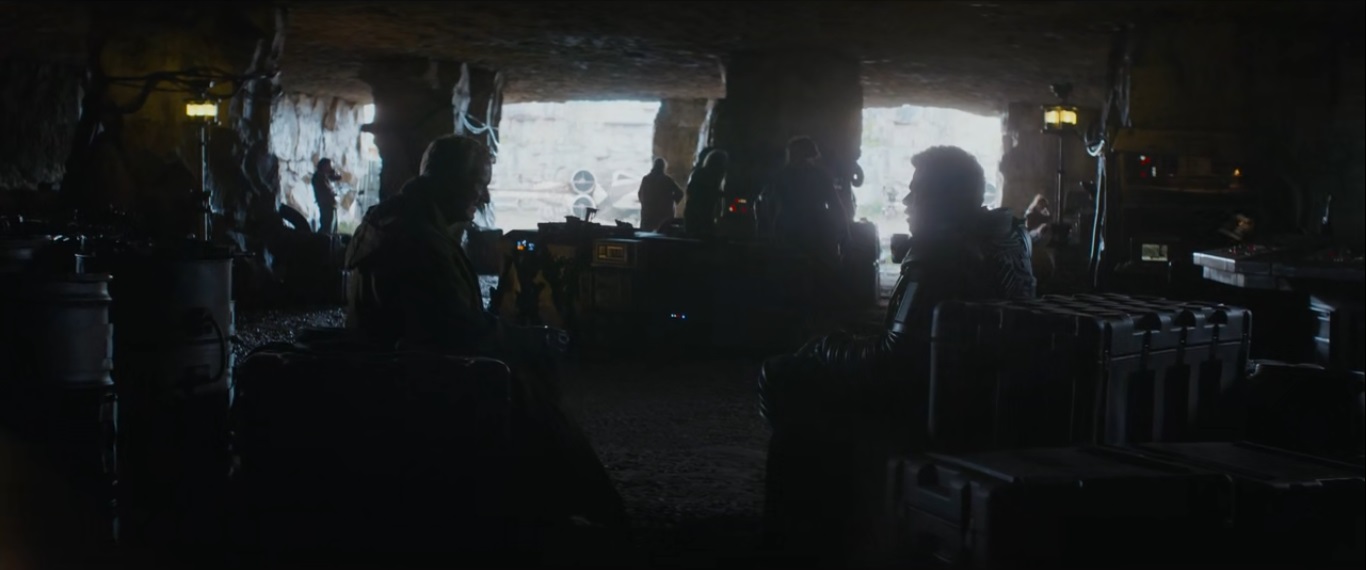
FURTHER ANALYSIS
Report Pending